The Carrot Companion Guide: Which Plants To Grow Together For A
The Carrot Companion Guide: Which Plants to Grow Together for a Healthy and Productive Garden
Carrots are a popular vegetable that is easy to grow and versatile in the kitchen. But did you know that there are certain plants that can help carrots grow better? Companion planting is the practice of planting different types of plants together in order to benefit each other. By planting carrots with the right companion plants, you can improve their growth, flavor, and pest resistance.
In this guide, we will discuss the best companion plants for carrots. We will also talk about which plants to avoid planting near carrots. By the end of this guide, you will be well-informed about companion planting and be able to choose the best plants for your carrot garden.
What are Companion Plants?
Companion plants are plants that benefit each other when they are grown together. There are many different ways that plants can benefit each other. For example, some plants can attract beneficial insects that help to control pests. Other plants can help to improve the soil quality, which can benefit all of the plants in the garden.
There are a few different principles that guide companion planting. One principle is that plants with similar needs should be planted together. For example, carrots and lettuce both need full sun and well-drained soil. Planting these plants together will help them to thrive.
Another principle of companion planting is that plants with different strengths can be planted together to complement each other. For example, carrots are susceptible to carrot flies. Planting chives near carrots can help to repel carrot flies.
The Best Companion Plants for Carrots
There are many different plants that can be grown as companion plants for carrots. Here are some of the best:
- Chives: Chives are a member of the Allium family, which also includes onions and garlic. These plants have a strong scent that helps to repel pests, such as carrot flies and aphids. Chives can also improve the flavor of carrots.
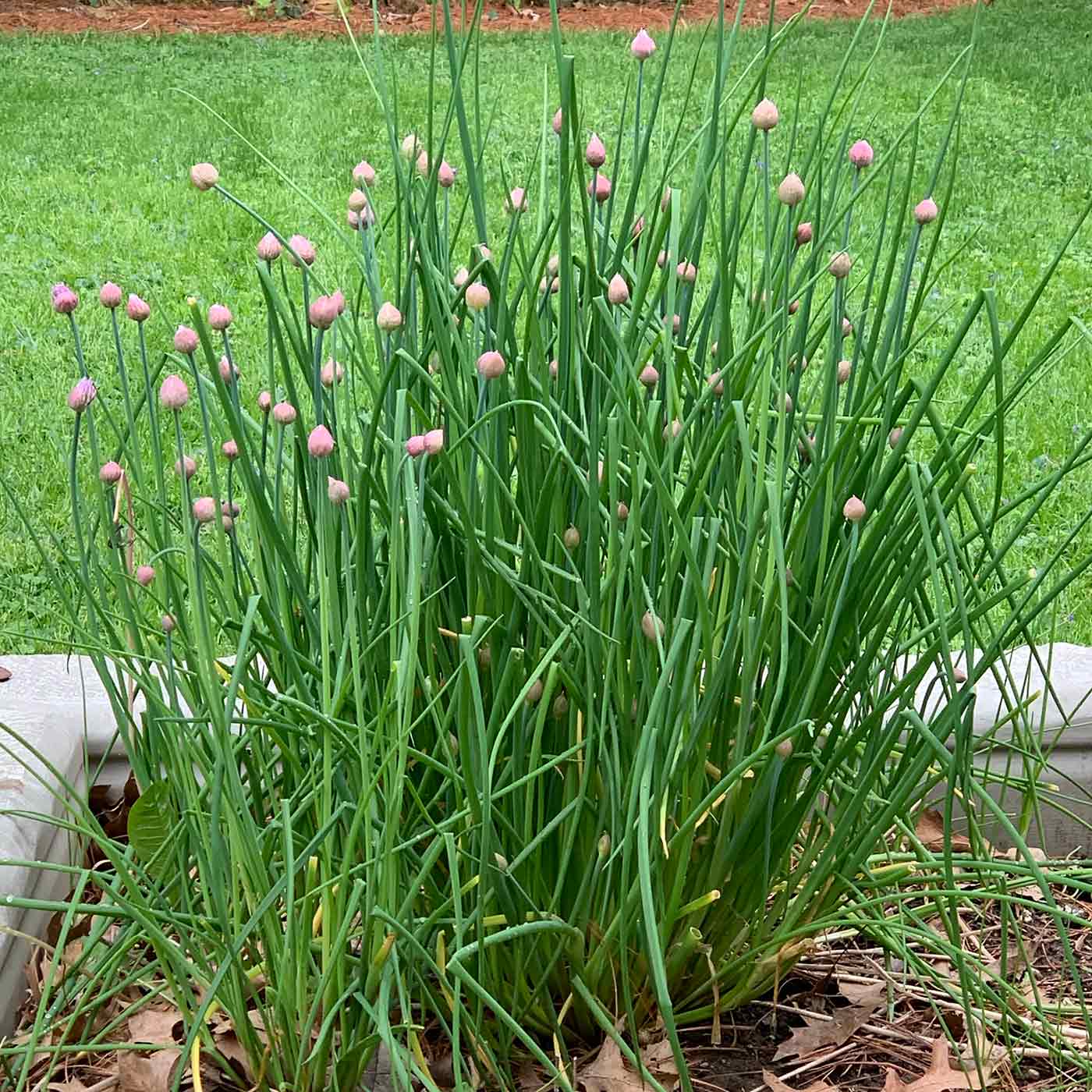
- Leeks: Leeks are another member of the Allium family that can be grown as a companion plant for carrots. Leeks help to repel carrot flies and other pests. They also help to improve the soil quality, which can benefit carrots.
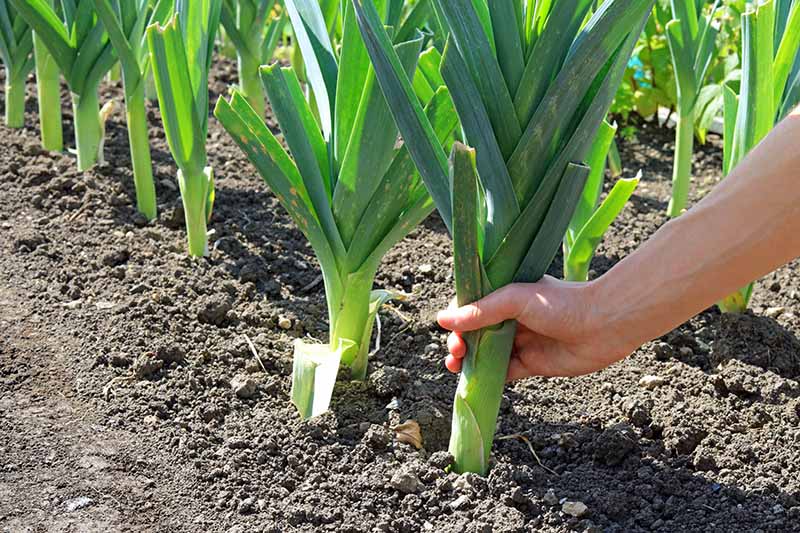
- Marigolds: Marigolds are a popular garden flower that also makes a great companion plant for carrots. Marigolds help to repel nematodes, which are microscopic worms that can damage carrots. They also attract beneficial insects, such as ladybugs, which help to control pests.
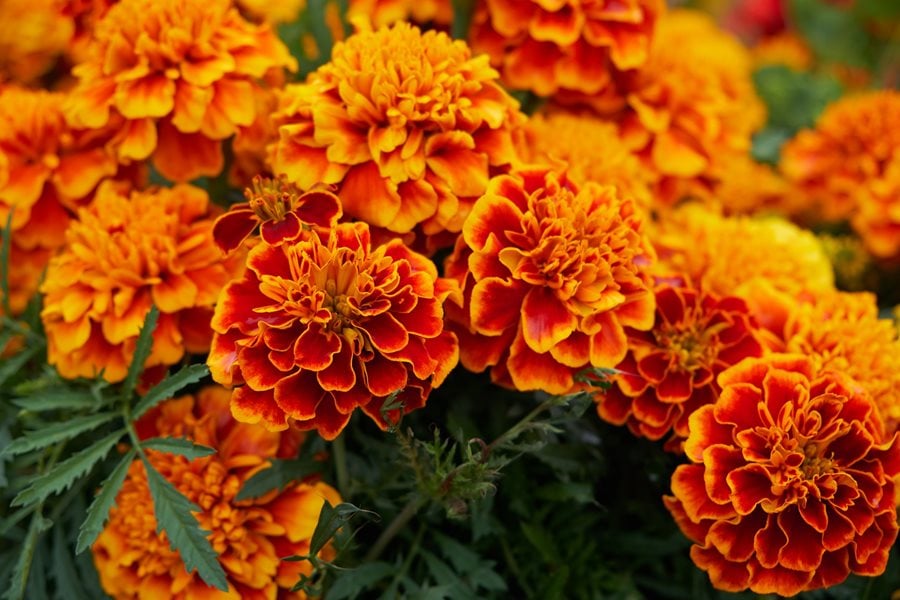
- Nasturtiums: Nasturtiums are another flowering plant that can be grown as a companion plant for carrots. Nasturtiums help to repel aphids, cucumber beetles, and other pests. They also attract beneficial insects, such as ladybugs.

- Beans: Beans are legumes, which means that they can fix nitrogen in the soil. This can help to improve the soil quality for carrots and other plants. Beans also help to suppress weeds, which can give carrots more room to grow.
-(2).jpg)
- Peas: Peas are another type of legume that can be grown as a companion plant for carrots. Peas fix nitrogen in the soil just like beans, and they also help to suppress weeds. Peas can also provide shade for carrots, which can help to keep them cool during hot weather.
Plants to Avoid Planting Near Carrots
There are a few plants that should not be planted near carrots. These plants include:
- Dill: Dill is a member of the carrot family, and it can cross-pollinate with carrots. This can lead to the carrots tasting bitter.
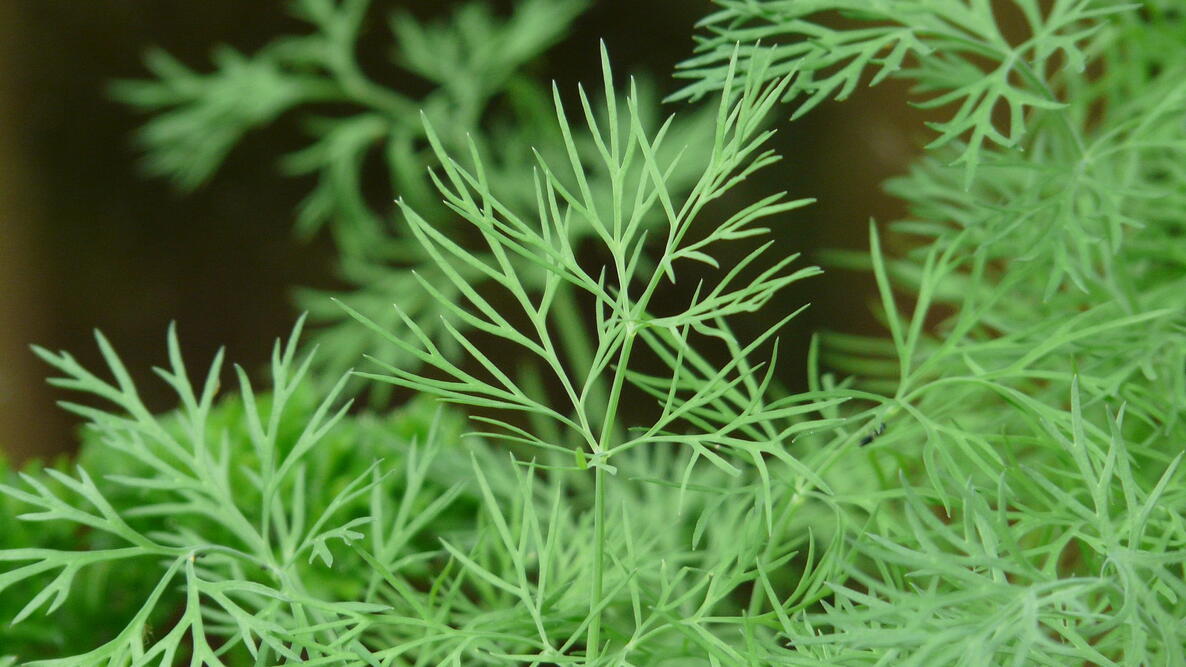
- Celery: Celery is another member of the carrot family, and it should not be planted near carrots for the same reason as dill.

- Parsnips: Parsnips are a root vegetable that is closely related to carrots. They should not be planted near carrots because they can compete for resources.

Conclusion
By planting the right companion plants near your carrots, you can improve their growth, flavor, and pest resistance. By avoiding planting the wrong plants near your carrots, you can prevent them from tasting bitter or being damaged by pests.
By following the tips in this guide, you can grow healthy and productive carrots in your garden. So get out there and start planting!
FAQ of best and worst companion plants for carrots
5 Most Frequently Asked Questions About Best and Worst Companion Plants for Carrots
- What are the best companion plants for carrots?
Carrots grow well with a variety of plants, including:
Beans: Beans fix nitrogen in the soil, which can benefit carrots.
Brassicas: Brassicas, such as broccoli, cabbage, and kale, help to repel pests that can damage carrots.
Chives: Chives help to deter carrot flies.
Lettuce: Lettuce helps to shade the soil around carrots, which can help to prevent them from bolting.
Onions: Onions help to repel carrot root flies.
Peas: Peas help to improve the soil structure, which can benefit carrots.
Radishes: Radishes are a good companion plant for carrots because they mature quickly and can be harvested before they compete with the carrots for space.
Rosemary: Rosemary helps to repel carrot flies.
Sage: Sage helps to repel carrot flies.
Tomatoes: Tomatoes help to deter pests that can damage carrots.
What are the worst companion plants for carrots?
Carrots should not be planted near:
Celery: Celery can harbor carrot root flies.
Cucumbers: Cucumbers can compete with carrots for water and nutrients.
Fennel: Fennel can inhibit the growth of carrots.
Marigolds: Marigolds can attract carrot root flies.
Melons: Melons can compete with carrots for water and nutrients.
Potatoes: Potatoes can harbor the same pests and diseases as carrots.
How do companion plants benefit carrots?
Companion plants can benefit carrots in a number of ways, including:
Attracting beneficial insects: Some companion plants, such as chives and onions, attract beneficial insects that help to control pests that can damage carrots.
Improving soil health: Some companion plants, such as beans and peas, help to improve the soil structure, which can benefit carrots by providing better drainage and aeration.
Reducing competition: Some companion plants, such as radishes, mature quickly and can be harvested before they compete with the carrots for space.
Repellent pests: Some companion plants, such as marigolds and rosemary, can repel pests that can damage carrots.
How do I plant companion plants with carrots?
When planting companion plants with carrots, it is important to consider the spacing requirements of both plants. For example, beans and peas need more space than chives and onions. It is also important to consider the mature size of the plants. For example, radishes should be planted in the same row as carrots, but they should be harvested before they get too big.
Image of best and worst companion plants for carrots
5 different images of best and worst companion plants for carrots from Pinterest:
- Best companion plants for carrots:
- Chives: Chives have a shallow root system, so they won't compete with carrots for space or nutrients. They also help to repel carrot flies.

- Radish: Radishes grow quickly and mature early, so they can be planted as a "successor crop" after carrots have been harvested. They also help to loosen the soil, which benefits carrots.

- Lettuce: Lettuce is a leafy green that doesn't require a lot of space, so it can be planted between carrots. It also helps to shade the soil, which can help to keep carrots cool and prevent them from bolting.
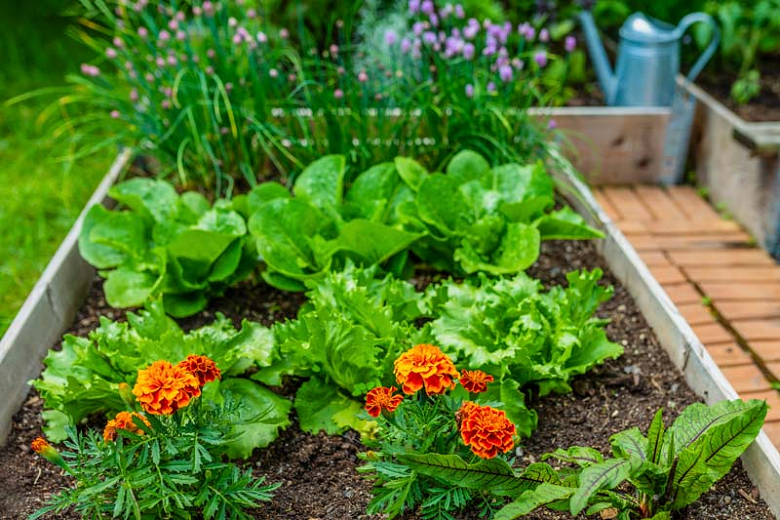
- Thyme: Thyme is a fragrant herb that helps to repel pests, such as carrot flies. It also helps to improve the flavor of carrots.
- Cosmos: Cosmos is a daisy-like flower that helps to attract beneficial insects, such as ladybugs and lacewings. These insects help to control pests that can damage carrots.
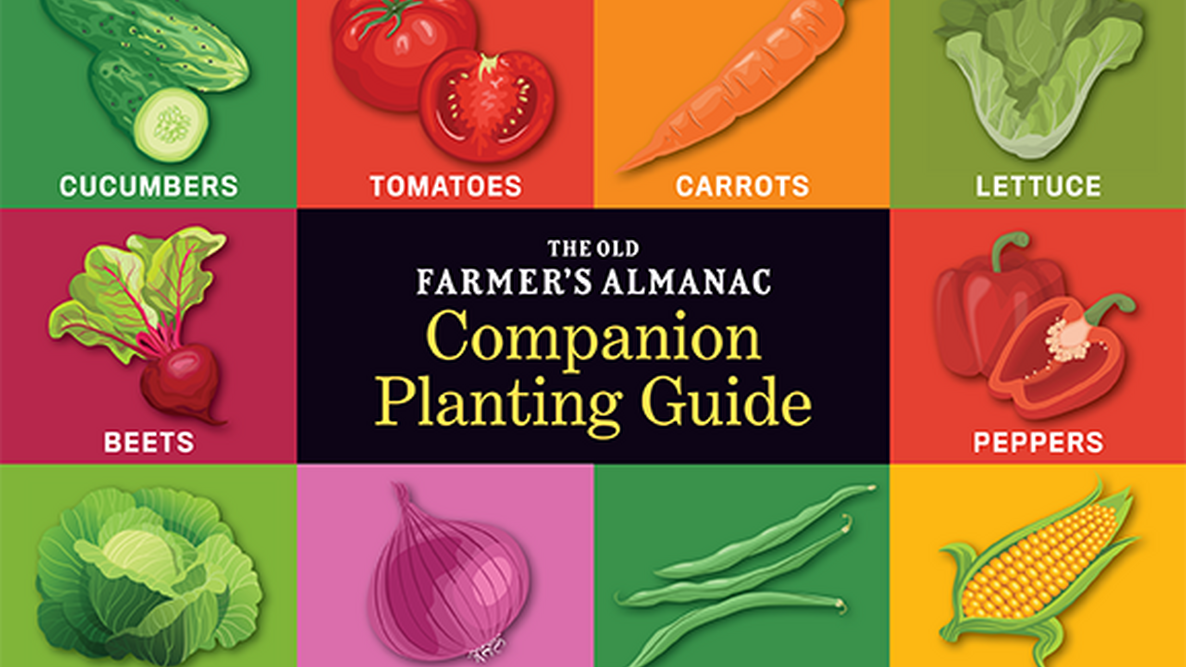
- Chives: Chives have a shallow root system, so they won't compete with carrots for space or nutrients. They also help to repel carrot flies.
- Worst companion plants for carrots:
- Dill: Dill is a member of the carrot family, so it can cross-pollinate with carrots and produce a poor-tasting hybrid.

- Celery: Celery can attract the same pests and diseases as carrots, such as carrot rust fly. Planting them together can increase the risk of pest infestations.

- Fennel: Fennel secretes a chemical called anethole that can stunt the growth of nearby plants, including carrots. It also attracts pests such as aphids.
- Potato: Potatoes and carrots have similar root systems, so they compete for space and nutrients. Planting them together can stunt the growth of both crops.
- Dill: Dill is a member of the carrot family, so it can cross-pollinate with carrots and produce a poor-tasting hybrid.
Post a Comment for "The Carrot Companion Guide: Which Plants To Grow Together For A"